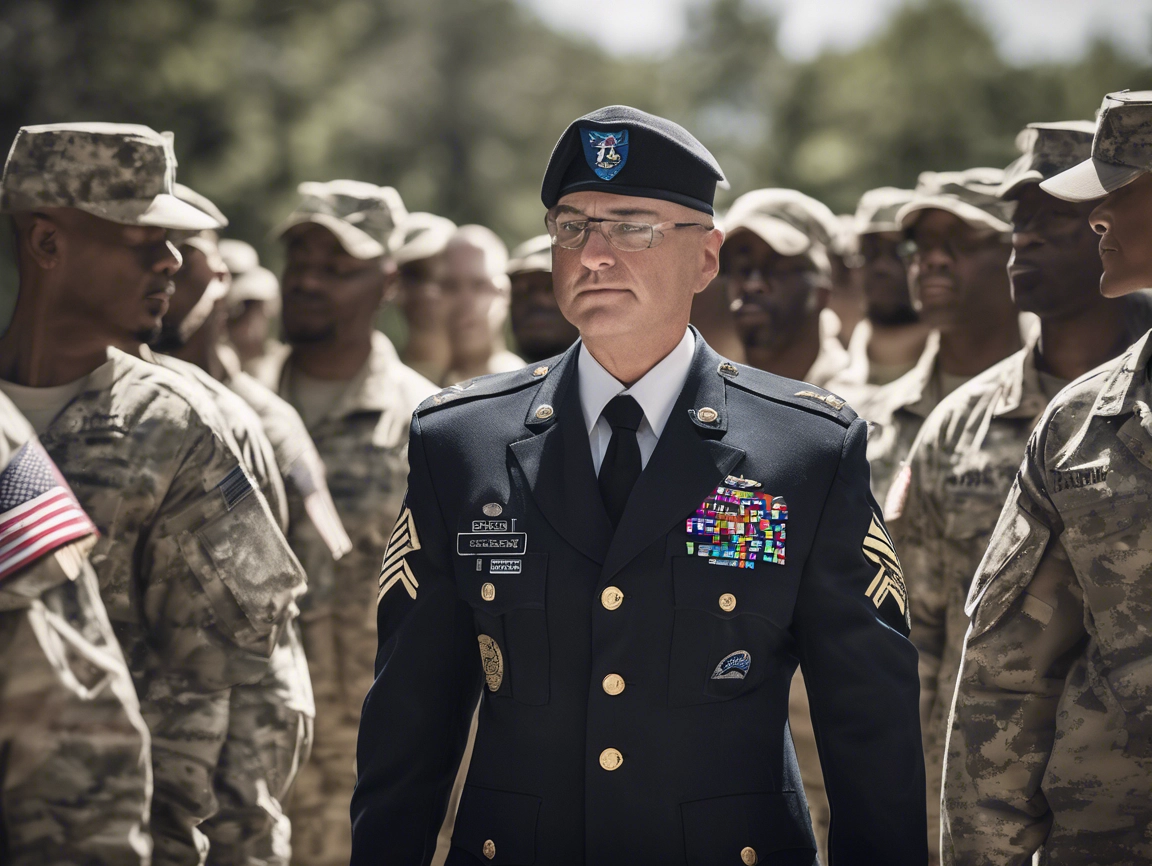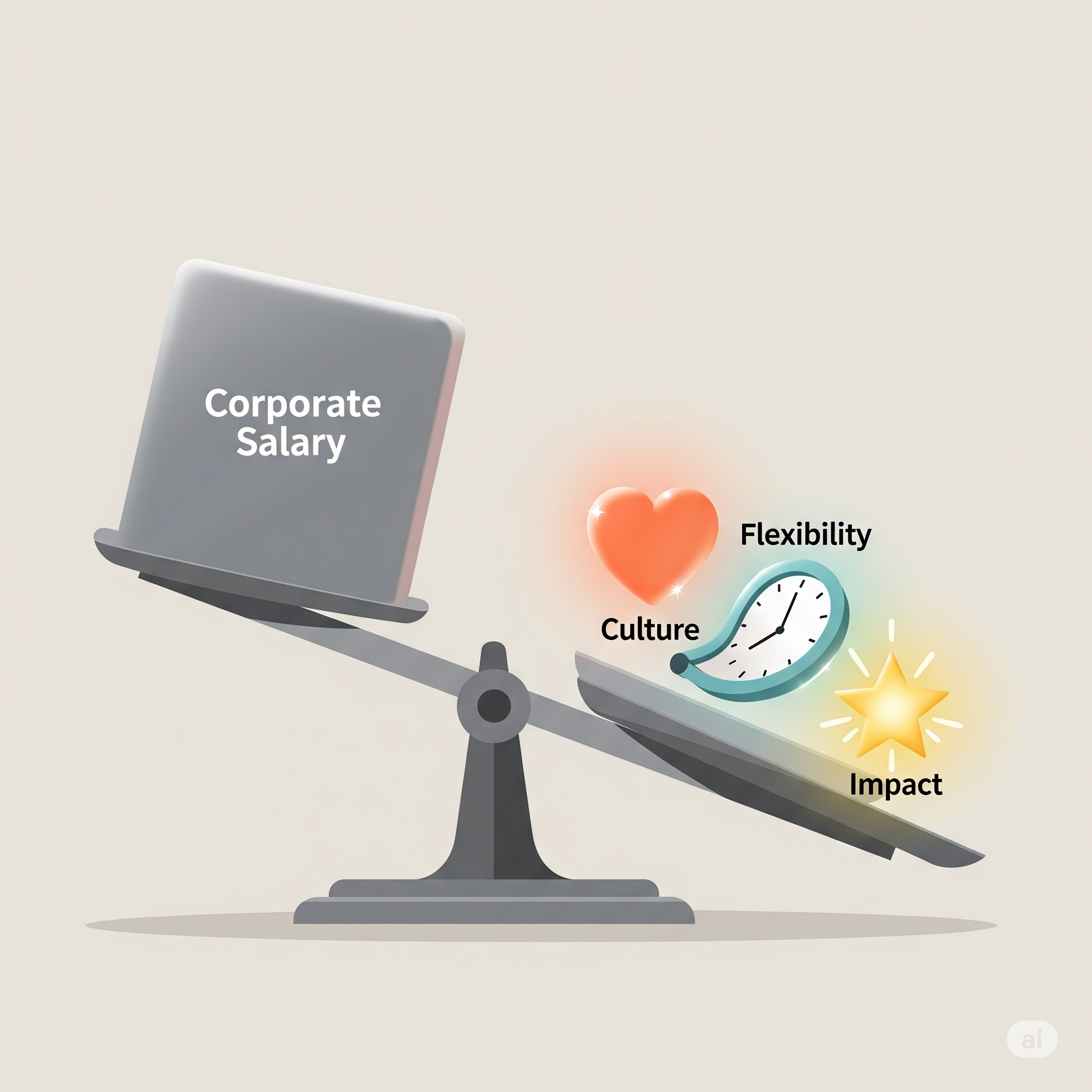Veteran Leaders: How Military Experience Creates Business Resilience in Crisis
Change isn’t just constant – it’s often sudden, disruptive, and can throw even the most stable companies into a tailspin. From unexpected economic downturns and supply chain nightmares to rapid technological shifts and global health crises, businesses are constantly navigating choppy waters. The ability to not just survive these storms, but to emerge stronger, is what defines true business resilience. But where do companies find leaders equipped with the unique skills to steer their ships through such turbulence? Often, the answer lies in a perhaps overlooked talent pool: military veterans.
These men and women, who have served in armed forces around the world, bring a wealth of experience that is directly transferable to the challenges of the corporate landscape. Their time in uniform isn’t just about combat; it’s about rigorous training in leadership, strategy, teamwork, and decision-making under extreme pressure. These aren’t just good traits to have; they are essential superpowers in a crisis. This article will explore the incredible ways military experience fosters the kind of leadership that doesn’t just manage a crisis, but actively builds a company’s ability to bounce back and thrive.
The Unseen Advantage: Why Military Experience Matters
When you think of a soldier, sailor, airman, or marine, you might picture uniforms and strict rules. While that’s part of it, the true essence of military training goes far deeper, shaping individuals with capabilities that are priceless in the business world, especially when things go wrong.
Discipline and Structure Under Pressure
The military is built on discipline and structure. Every task, no matter how small, often has a specific procedure and a clear objective. This isn’t just about following orders; it’s about understanding how each piece fits into a larger, critical mission. Imagine a complex operation where every step, from planning to execution, is meticulously planned and rehearsed. This level of precision and adherence to process is ingrained in veterans.
In a business crisis, chaos can quickly take over. Information might be scarce, emotions can run high, and decisions need to be made quickly. A leader with military discipline brings a calm, methodical approach. They can establish clear procedures, define roles, and ensure that everyone understands their responsibilities, even when the situation is unfolding rapidly. This structured approach helps prevent panic, reduces errors, and keeps the team focused on solutions rather than distractions. Think about a supply chain suddenly breaking down. A veteran leader won’t just react; they’ll likely quickly map out the problem, identify critical nodes, and systematically work through alternative solutions, maintaining order amidst the confusion. They understand that without structure, even the best intentions can lead to inefficiency.
Strategic Thinking and Adaptability
Military operations are rarely simple. They involve understanding complex situations, anticipating enemy moves, and planning long-term campaigns while being ready to change everything in an instant. This constant need to think strategically, from the grand overview down to the smallest detail, is a hallmark of military training. Soldiers are taught to analyze situations, assess risks, and develop multiple contingency plans, knowing that the first plan often won’t survive first contact.
This translates directly to the unpredictable nature of business. Markets shift, new technologies emerge, competitors make unexpected moves, and customer needs evolve. A veteran leader has been trained to look beyond the immediate problem, to see the bigger picture, and to understand how different actions will impact the entire “battlefield” – or marketplace. More importantly, they excel at adaptability. If a strategy isn’t working, they don’t stubbornly stick to it. Instead, they quickly analyze why, make adjustments, and pivot to a new approach. This agility, the ability to change direction without losing momentum, is incredibly valuable when a company faces a sudden economic downturn or a major industry disruption. They’re not just problem-solvers; they’re dynamic strategists who can adjust their sails to catch new winds, even in a storm.
Decisive Leadership in Ambiguity
Imagine being in a high-stakes situation where lives are on the line, and you don’t have all the information you need. Military leaders are constantly faced with making critical decisions under pressure, often with incomplete data and significant uncertainty. They learn to process available information quickly, weigh potential outcomes, and then make a clear, decisive choice. Hesitation can be catastrophic.
In the business world, especially during a crisis, there’s rarely a perfect answer. Companies often grapple with difficult choices: whether to cut costs, invest in new technology, or enter a new market when the future is unclear. Leaders without this experience can fall into “analysis paralysis,” endlessly debating options without committing to a path. Veteran leaders, however, are comfortable with calculated risks and the need for decisive action. They understand that sometimes, a good plan executed now is better than a perfect plan too late. They inspire confidence because they project conviction, even when the path ahead isn’t perfectly clear. This decisiveness keeps teams moving forward, prevents stagnation, and allows companies to gain a critical advantage during periods of uncertainty.
Team Cohesion and Mission Focus
In the military, the concept of a “unit” or “team” is paramount. Lives depend on trust, communication, and every individual fulfilling their role. Soldiers learn to rely on each other implicitly, to put the mission first, and to understand that individual success is secondary to the success of the group. This fosters an incredible sense of loyalty, shared purpose, and selfless dedication.
When a company faces a crisis, internal divisions can tear it apart. Employees might focus on individual survival rather than collective success. A veteran leader instinctively understands the importance of building and maintaining a strong, cohesive team. They know how to motivate people, how to resolve conflicts, and how to rally everyone around a common objective. They emphasize shared responsibility and mutual support. This mission-focused mindset ensures that everyone is pulling in the same direction, dedicating their energy to overcoming the challenge, rather than being distracted by internal politics or personal agendas. This powerful sense of unity not only helps weather the immediate storm but also builds a more resilient and high-performing organization in the long term.
Crisis Management: Lessons from the Front Lines
The skills developed in the military aren’t just abstract leadership qualities; they are directly applicable to the practicalities of crisis management. Veterans have been trained, tested, and proven in situations that demand immediate and effective responses.
Calm Under Fire: Emotional Regulation
One of the most striking characteristics of many veteran leaders is their ability to remain calm when everyone else is panicking. In combat or high-pressure military exercises, maintaining composure is not just a personal trait; it’s a trained response. They learn to control their emotions, think clearly, and act rationally even when faced with extreme stress, danger, or overwhelming odds.
This “calm under fire” is incredibly contagious in a business crisis. When a company is facing a severe threat – perhaps a sudden lawsuit, a public relations nightmare, or a financial meltdown – employees naturally look to their leaders for guidance and reassurance. A leader who remains level-headed, speaks with a steady voice, and projects confidence can prevent widespread panic among staff. This emotional regulation allows them to make well-reasoned decisions instead of knee-jerk reactions driven by fear. It helps them communicate clearly and effectively, reassuring stakeholders and guiding the team through the difficulty without adding to the emotional turmoil. This ability to be the steady hand on the tiller is a foundational element of effective crisis leadership.
Risk Assessment and Mitigation
Military operations are inherently risky, and a huge part of training involves identifying potential threats, assessing their likelihood and impact, and developing plans to minimize or counter them. This isn’t just about avoiding danger; it’s about understanding risk so that calculated decisions can be made. Every mission involves a detailed risk assessment and the creation of contingency plans to deal with various “what if” scenarios.
In the business world, particularly during a crisis, the ability to accurately assess risk is crucial. Veteran leaders bring a proactive mindset, accustomed to thinking several steps ahead. They’re not just reacting to problems; they’re constantly looking for potential pitfalls and vulnerabilities, whether in supply chains, market trends, or internal operations. They can quickly identify the most significant threats and prioritize resources to mitigate them. For example, if a major supplier suddenly goes out of business, a veteran leader will not only address the immediate gap but also immediately analyze dependencies across the entire supply chain to prevent similar future disruptions. They understand that effective risk mitigation isn’t just about fixing problems but building systems that are less vulnerable in the first place, laying the groundwork for long-term business resilience.
Resourcefulness and Problem-Solving
In the military, leaders often operate in environments where resources are limited, situations are constantly changing, and traditional solutions may not apply. They are trained to be incredibly resourceful, to “improvise, adapt, and overcome.” This means finding creative solutions with whatever tools and personnel are available, even under dire circumstances. They are masters at making “do more with less.”
This resourcefulness is an invaluable asset when a company is in crisis. During times of economic hardship, supply shortages, or unexpected operational challenges, traditional methods might not work. A veteran leader won’t be flustered by limitations; instead, they will view them as a challenge to their ingenuity. They will encourage their teams to think outside the box, to repurpose existing assets, and to find innovative workarounds. For instance, if a crucial piece of machinery breaks down and parts are unavailable, a veteran leader might rally engineers and technicians to find a creative way to repair it or rig a temporary solution, leveraging their experience in making things work despite constraints. This mindset not only solves immediate problems but also fosters a culture of innovation and resilience throughout the organization, teaching everyone to find solutions even when resources are scarce.
Communication Clarity and Chain of Command
In military operations, clear, precise, and unambiguous communication is literally a matter of life and death. Instructions must be understood perfectly, information must flow efficiently up and down the chain of command, and everyone must know their role and to whom they report. There is no room for ambiguity or misinterpretation.
During a business crisis, the need for crystal-clear communication becomes equally critical. Rumors, misinformation, and unclear directives can quickly spread panic and paralyze an organization. Veteran leaders instinctively understand the importance of establishing a clear communication strategy. They will ensure that vital information is communicated quickly and accurately to all relevant stakeholders, from employees and customers to investors and suppliers. They will also reinforce the chain of command, ensuring that roles and responsibilities are clearly defined, and that decisions are made and executed efficiently. This disciplined approach to communication prevents confusion, maintains trust, and ensures that everyone is aligned on the path forward, a crucial element for navigating any significant business challenge effectively.
Beyond the Crisis: Building Long-Term Resilience
While military experience is a powerful asset during immediate crises, its benefits extend far beyond just surviving the storm. Veteran leaders contribute to building a foundational strength that makes companies inherently more resilient and prepared for future challenges.
Fostering a Culture of Accountability
In the military, accountability is absolute. Every individual understands their responsibilities, and there are clear consequences for failure to perform, but also recognition for success. This creates an environment where personal responsibility is deeply ingrained, and excuses are not accepted. The team’s success depends on each member doing their part.
A veteran leader brings this strong sense of accountability to the business world. They don’t just assign tasks; they empower individuals to take ownership of their work and their outcomes. They create a culture where people are encouraged to admit mistakes, learn from them, and take proactive steps to improve. This doesn’t mean a harsh or punitive environment; rather, it’s about fostering a sense of shared responsibility and high standards. When everyone feels accountable for their role in the company’s success, performance improves, problems are addressed more quickly, and the organization becomes more robust against internal weaknesses. This culture of ownership means that the company is better prepared to identify and address its own vulnerabilities before they escalate into full-blown crises.
Developing Future Leaders
A core mission of any military organization is to train and develop its next generation of leaders. Experienced officers and non-commissioned officers spend significant time mentoring junior personnel, delegating responsibilities, and providing opportunities for growth. They understand that the strength of the organization depends on a deep bench of skilled and prepared leaders.
Veteran leaders in the corporate world naturally carry this mentorship mindset. They are adept at identifying potential in their teams, delegating challenging assignments, and providing constructive feedback. They understand that empowering their subordinates not only lightens their own load but also builds a more capable and resilient workforce. They’re not afraid to let people learn through experience, even if it means small failures along the way, because they know that’s how true leadership is forged. This focus on internal development ensures that the company always has a pipeline of skilled individuals ready to step up and lead, not just during a crisis, but as part of everyday operations and strategic growth. This deep talent pool is a cornerstone of long-term business resilience.
Ethical Leadership and Integrity
Military service often instills a profound sense of duty, integrity, and a strong moral compass. Codes of conduct, honor, and loyalty are central to military life. Leaders are expected to uphold the highest ethical standards, make decisions that reflect core values, and maintain the trust of their subordinates and the public.
In the business world, integrity is the bedrock of long-term success. During a crisis, temptations to cut corners or make ethically questionable decisions can arise. A veteran leader’s deeply ingrained commitment to ethics provides a crucial anchor. They will consistently prioritize doing the right thing, even when it’s difficult or unpopular. This builds immense trust with employees, customers, partners, and the wider community. Companies led with integrity are more likely to attract and retain top talent, build strong customer loyalty, and navigate difficult public relations challenges with credibility. This unwavering ethical foundation is not just about avoiding legal trouble; it’s about building a reputation and a culture that is inherently strong and respected, making the company resilient against moral failures that can often be more devastating than financial ones.
Embracing Continuous Improvement
After every military operation, whether successful or not, there’s typically an “after-action review” (AAR). This is a thorough and honest assessment of what went well, what didn’t, and why. The goal is not to assign blame, but to extract lessons learned and apply them to future operations. This commitment to continuous improvement is deeply ingrained in military culture.
Veteran leaders bring this invaluable practice of continuous improvement to the business world. They understand that resilience isn’t just about surviving a crisis; it’s about learning from it and becoming stronger for the next one. They encourage systematic reviews of projects, processes, and strategies, even when things are going smoothly. They foster an environment where feedback is welcomed, and mistakes are seen as opportunities for growth, not as failures. This approach ensures that the company is constantly adapting, refining its processes, and building its capabilities. It means that the organization becomes a “learning machine,” always getting better, always innovating, and always improving its ability to anticipate and respond to future challenges. This dedication to ongoing improvement is the engine of true, sustainable business resilience.
Bridging the Gap: How Companies Can Recruit and Support Veteran Leaders
Given the immense value veteran leaders bring, it’s surprising that many companies still struggle to effectively recruit and integrate them. Bridging this gap requires understanding their unique journey and creating supportive pathways.
Understanding the Value Proposition
Often, hiring managers in the civilian sector don’t fully grasp how military skills translate to business. They might see a resume with terms like “platoon leader” or “logistics officer” and not immediately connect it to managing a team, overseeing supply chains, or executing complex projects. The first step is education. Companies need to train their HR departments and hiring managers to recognize the transferable skills embedded in military experience. A “platoon leader” isn’t just someone who commanded soldiers; they are a project manager, a HR manager, a risk assessor, and a trainer, all rolled into one, operating under extreme conditions.
Businesses should look beyond traditional civilian job descriptions and actively seek out candidates with backgrounds in military operations, logistics, engineering, intelligence, or even administrative roles. Understanding that military training often provides accelerated leadership development far beyond what’s available in typical civilian roles is crucial. This proactive recognition of the inherent value proposition is the first step towards attracting this talent.
Targeted Recruitment Strategies
To effectively recruit veteran leaders, companies need to go where they are. This means more than just posting job openings on general boards. It involves:
* Partnering with veteran organizations: Organizations like the Department of Veterans Affairs, various veterans’ service organizations, and non-profits focused on veteran employment often have vast networks and resources.
* Attending veteran job fairs: These events are specifically designed to connect transitioning military personnel and veterans with civilian employers.
* Creating veteran-specific hiring programs: Some companies have dedicated programs, internships, or rotational leadership programs tailored for veterans, recognizing their unique skills and helping them adapt to the corporate environment. These programs can provide a structured transition and a clear path for advancement.
* Leveraging military hiring consultants: Specialized firms exist that focus solely on helping companies recruit and retain military talent.
These targeted strategies ensure that companies are reaching the right talent pool and signaling their commitment to supporting veterans.
Onboarding and Integration
The transition from military to civilian life can be challenging. While veterans bring incredible skills, the corporate environment has its own culture, language, and unspoken rules. Effective onboarding and integration programs are key to their success:
* Mentorship programs: Pairing new veteran hires with experienced civilian mentors can provide invaluable guidance, help them navigate corporate politics, and translate their military experiences into relatable business terms.
* “Translation” workshops: Helping veterans understand how their military experiences (e.g., mission planning, debriefs, chain of command) align with business concepts (e.g., project management, performance reviews, organizational structure) can smooth the transition.
* Networking opportunities: Facilitating connections with other veterans within the company or establishing veteran employee resource groups can provide a sense of community and support.
* Providing clear career paths: Showing veterans how their unique skills can lead to advancement within the company helps them envision a long-term future and stay engaged.
Successful integration isn’t just about hiring; it’s about setting veterans up for long-term success and empowering them to apply their unique skills effectively.
Creating a Veteran-Friendly Culture
Beyond formal programs, fostering an inclusive and veteran-friendly culture is paramount. This includes:
* Acknowledging military service: Recognizing and respecting their service, understanding the sacrifices made, and celebrating their unique contributions.
* Promoting understanding: Educating non-veteran employees about military culture and the benefits of hiring veterans can reduce misunderstandings and foster a more welcoming environment.
* Providing resources: Being aware of and sensitive to potential challenges veterans might face (e.g., PTSD, physical injuries) and providing access to support resources if needed.
* Flexibility and empathy: Understanding that veterans may sometimes need time for VA appointments or may have unique personal needs related to their service.
A genuinely supportive environment not only attracts veterans but also encourages them to thrive, unleash their full potential, and become invaluable assets to the company’s resilience.
Real-World Examples and Testimonials (Conceptual)
While I cannot provide specific names or confidential company details, the impact of veteran leaders is evident across various industries. Imagine a small technology startup suddenly facing a major cybersecurity breach. Panic could set in, but a CEO with a background in military intelligence quickly establishes a clear command center, assigns roles, and methodically works through remediation steps, leveraging their training in managing critical information and coordinating rapid response teams. The company recovers faster than competitors might have, demonstrating the resilience instilled by decisive, crisis-tested leadership.
Consider a large manufacturing firm grappling with an unprecedented global supply chain disruption. A veteran leader in charge of operations, trained in complex logistics and resource allocation under pressure, doesn’t just react to shortages. Instead, they quickly map alternative routes, identify potential new suppliers, and strategically reallocate existing inventory. They maintain a calm demeanor, communicate clearly with all stakeholders, and inspire their team to find creative solutions, eventually navigating the company through the crisis with minimal long-term damage, precisely because of their experience in “making a mission happen” despite unforeseen obstacles.
In a non-profit organization facing a sudden funding shortfall and a need to pivot its strategy, a veteran program director, accustomed to mission re-evaluation and effective resource deployment, leads the charge. They initiate a rigorous “after-action review” of past programs, identify inefficiencies, and then, with strategic foresight, reorganize the team and resources to focus on areas of maximum impact. Their ability to make tough decisions, prioritize effectively, and rally a passionate team around a redefined mission saves the organization from collapse and sets it on a more sustainable path.
These hypothetical scenarios illustrate a common thread: veteran leaders bring a unique blend of strategic thinking, practical problem-solving, and unwavering calm that allows organizations to not only survive crises but to emerge stronger, more adaptable, and better prepared for whatever lies ahead. Their impact isn’t just about preventing failure; it’s about actively building robust, future-proof organizations.
Conclusion
In a world where business stability is increasingly a myth, and disruptions are the new normal, the ability to build and sustain resilience is no longer a luxury—it’s a necessity. Companies that can weather economic storms, adapt to rapid technological change, and navigate unforeseen global challenges are the ones that will thrive. At the heart of such resilient organizations often lie leaders with unique, crisis-tested skills.
As we’ve explored, military veterans possess an unparalleled set of these skills. Their experiences cultivate discipline, strategic foresight, decisive action, and an unwavering commitment to team cohesion. They are masters of crisis management, capable of remaining calm under fire, accurately assessing risks, finding resourceful solutions, and communicating with crystal clarity when it matters most. Beyond the immediate crisis, they contribute to building long-term organizational strength by fostering accountability, developing future leaders, upholding ethical standards, and driving continuous improvement.
For businesses looking to future-proof themselves and build truly resilient operations, recognizing and actively recruiting veteran leaders is not just a patriotic gesture; it’s a strategic imperative. These individuals bring a depth of experience and a mindset forged in demanding environments that can truly transform a company’s ability to navigate uncertainty and emerge victorious. By understanding their value, implementing targeted recruitment and integration strategies, and fostering a supportive culture, companies can tap into this incredible talent pool and unlock a powerful competitive advantage in an ever-changing world. It’s time to recognize that the skills honed on the battlefield are precisely what businesses need to win in the marketplace.



